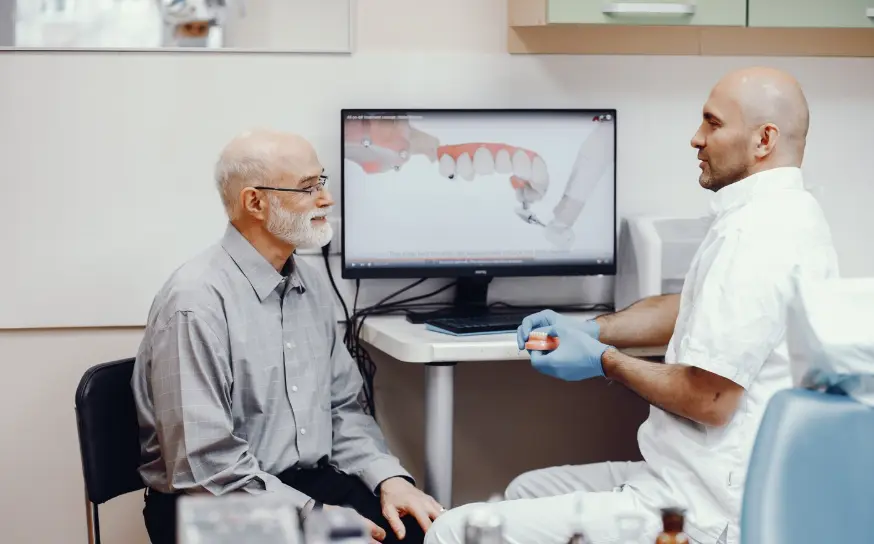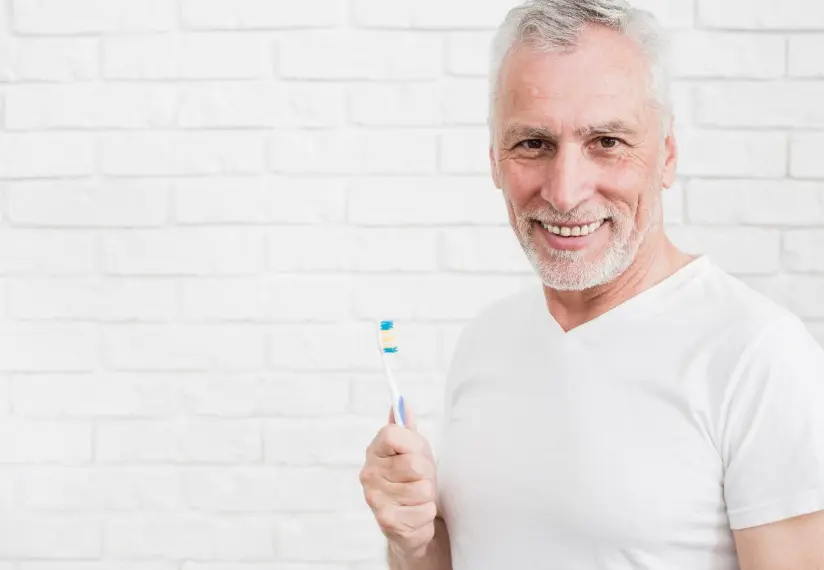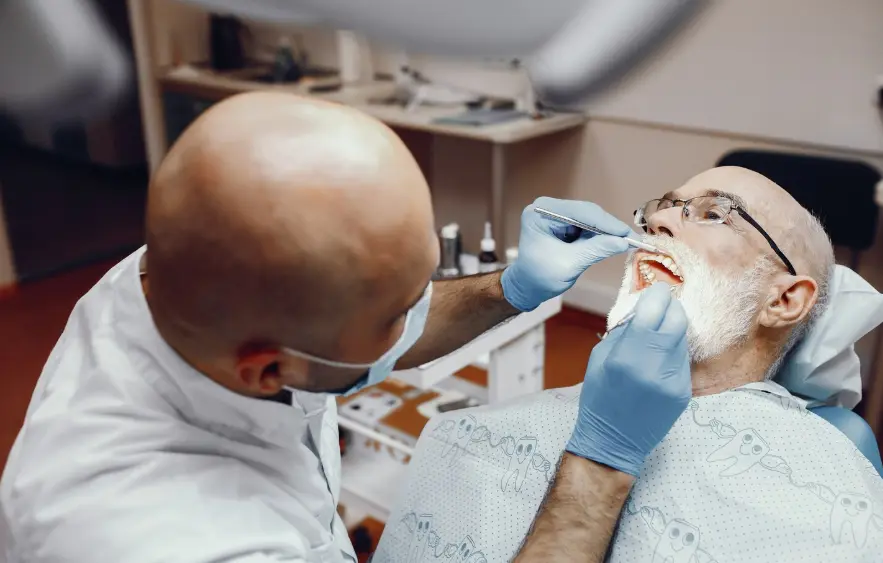Dental Care In Your Golden Years: What Seniors Need To Know
Can you maintain a healthy, bright smile in your old years? Absolutely. The fact that you are getting older does not mean your teeth should become pale.
Even as you age, dental care is more significant. It is not all about appearance. Oral health plays a part in what you eat and drink, confidence, and the standard of living.
Seniors have special dental problems that are not seen in younger individuals. Nevertheless, you can address these challenges directly with proper care and knowledge.
This guide explains everything you should know regarding keeping your gums and teeth healthy with age. Let’s dive in.
How Aging Affects Your Teeth And Gums

Aging affects your mouth just as it does your body. The teeth grow weak and prone to cracking, and years of wear make them stained. You develop receding gums and expose roots to the eyes, giving them sensitivity.
Older people have specific issues:
Root decay and cavities occur when medications lead to dry mouth. The less saliva there is, the more decay and bacteria.
The first signs of gum disease are red, inflamed gums that bleed. If left untreated, it becomes more serious and may lead to tooth loss.
Losing teeth will influence eating and food pleasure.
One way to deal with these age-related issues is to receive professional care from trusted providers such as Hillside NJ dental.
Why Your Oral Health Is More Important Than Ever
Your oral health not only impacts your teeth but also the entire body. Gum disease bacteria can spread to the rest of your body and make everything inflamed.
Serious health problems are related to it:
Heart Problem: Gum infection can cause cardiovascular diseases.
Diabetes: It is a two-way problem. Diabetes can exacerbate gum disease, and gum disease can, in turn, exacerbate blood sugar levels.
Memory Problems: New studies reveal that gum disease may be associated with Alzheimer’s and some cognitive problems.
In addition to health hazards, a healthy smile helps you stay self-assured and outgoing. Eating, talking, and smiling freely is vital to enjoying your golden years and being in touch with others.
What Puts Seniors At Risk For Dental Problems

Several things make seniors more likely to have dental problems:
Medications: Many common drugs cause dry mouth, which leads to more cavities and infections.
Health Conditions: Diabetes, cancer, and dementia directly affect your mouth or make it harder to care for your teeth.
Physical Challenges: Arthritis makes brushing difficult. Poor vision and memory problems affect daily dental care.
Current studies reveal disturbing disparities in oral health among older people. A CDC report showed that decay treatment remains prevalent, even among low-income elderly and members of particular races.
A survey conducted in 2025 indicated that low-income and less educated seniors are far more exposed to losing teeth and cavities without treatment. Economic factors play a significant role in the dental health conditions of older adults.
Daily Care Tips That Work
Good daily care habits are essential for seniors.
Brushing and Flossing: Brush twice daily with a soft toothbrush and fluoride toothpaste. If you have trouble gripping, try an electric toothbrush with a bigger handle or floss holder.
Special Care for Dental Work:
Dentures: Clean daily with a soft brush and denture cleaner. Soak overnight to prevent warping.
Bridges and Implants: Need extra cleaning around and under artificial teeth. Ask your dentist about floss threaders or water flossers.
Use Fluoride: Fluoride toothpaste and water strengthen teeth and prevent decay.
Watch Your Diet: Eat less sugar and starch. Limit alcohol and avoid all tobacco products, which increase risks of gum disease and oral cancer.
Why Regular Dental Visits Matter More Now
Preventive dental care is not a choice for older people. They identify issues at an early stage before they are costly and painful.
Your dentist will:
Remove the buildup of plaque and tartar
Examine the decay, gum disease, and other matters
Ensure that some dentures or appliances fit well
You should always tell your dentist about any medical procedure you plan, including chemotherapy or radiation. It can be very detrimental to your mouth and teeth; your dentist must know this beforehand.
Warning Signs You Shouldn’t Ignore
Watch for changes in your mouth and see a dentist quickly if you notice:
Sores, lumps, or white/red patches that won’t heal
Pain or trouble chewing or swallowing
Numbness in your mouth or tongue
Any ongoing mouth discomfort
Don’t ignore these warning signs.
Getting Past Common Obstacles To Good Oral Care

Elderly persons who have weak mobility or memory problems are not excluded from having good oral health care:
Get Support: You can get support through daily brushing and flossing.
Special Equipment: Use special equipment such as electric toothbrushes, floss holders, and other adaptive equipment when hands are not working as well as they used to.
Seek Low-Cost Care: See what community-based health centers, dental schools, and senior-specific plans offer to help you find more cost-effective dental care.
Irrespective of your physical or mental capacity, do not abandon yourself to receiving adequate dental treatment.
Conclusion
Proper dental care during your golden years can help you maintain your health, confidence, and independence.
Your smile can last many years with the appropriate daily routine and twice-yearly dental visits. There is no need to wait till troubles begin. You can easily book a dental checkup and prevent any complications.






